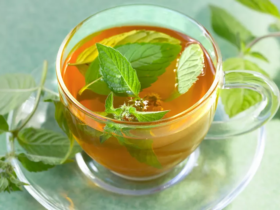In recent years, the demand for natural sugar alternatives has surged as people become more health-conscious and look for ways to reduce their sugar intake. Among the most popular natural sweeteners are monk fruit and stevia. Both offer a sweet taste without calories and are considered healthier alternatives to traditional sugar. However, there are differences between the two that might make one more suitable for your needs than the other. This article explores the origins, benefits, potential drawbacks, and uses of monk fruit and stevia, ultimately helping you decide the best natural sweetener.

Origins and Production
Monk Fruit: The Ancient Sweetener
Monk fruit, known as luo han guo, has been used for centuries in traditional Chinese medicine. Named after the monks who first cultivated it, monk fruit is native to southern China and northern Thailand. The fruit is small and round, similar to a melon, and is harvested from the vine it grows on.
The sweetness in monk fruit comes from natural compounds called mogrosides, which are extracted during production. To create monk fruit sweetener, the fruit is harvested, dried, and then processed to extract the mogrosides several hundred times sweeter than sugar. The resulting sweetener is a concentrated, zero-calorie product that retains the sweet flavor of the fruit without the sugars that can spike blood glucose levels.
Stevia: The Sweet Leaf
Stevia originates from the leaves of the Stevia rebaudiana plant, native to South America. Indigenous peoples in Paraguay and Brazil have used stevia for centuries, not only for its sweetening properties but also for its medicinal benefits. The leaves of the stevia plant contain natural compounds called steviol glycosides, which are responsible for their intense sweetness.
The plant leaves are harvested, dried, and steeped in hot water to produce stevia sweetener. The extracted liquid is further purified to isolate the steviol glycosides, which are then concentrated in powder or liquid form. Like monk fruit, stevia is significantly sweeter than sugar and contains no calories, making it a popular choice for those looking to reduce their caloric intake.
Nutritional Profiles and Health Benefits
Monk Fruit: Nutrient-rich and Antioxidant-Packed
Monk fruit is celebrated not only for its sweetness but also for its health benefits. The mogrosides in monk fruit are potent antioxidants that can help combat oxidative stress and inflammation. These antioxidants may lower the risk of chronic diseases such as heart disease and cancer.
Additionally, monk fruit sweetener has a negligible impact on blood sugar levels, making it a safe option for people with diabetes or those trying to manage their blood sugar. It also does not contribute to tooth decay, a significant advantage over traditional sugar.
Stevia: A Diabetic-Friendly Option
Stevia is similarly praised for its health benefits, particularly for people with diabetes. The steviol glycosides in stevia do not affect blood glucose or insulin levels, making it a safe sweetener for diabetes patients. Some studies have even suggested that stevia may help improve insulin sensitivity and reduce blood pressure, offering additional benefits for those with metabolic syndrome or hypertension.
Furthermore, stevia contains trace amounts of vitamins and minerals, including vitamin C and various antioxidants. These compounds can help protect against cellular damage and support overall health. Like monk fruit, stevia does not contribute to tooth decay, making it a tooth-friendly sweetener.

Taste and Culinary Uses
Monk Fruit: Versatile and Subtle
One of the critical factors in choosing a sweetener is its taste. Monk fruit sweetener is known for its clean, sweet flavor with a slight fruity aftertaste. Unlike artificial sweeteners, it has no bitter or metallic aftertaste, making it a pleasant addition to various foods and beverages.
Monk fruit sweetener is highly versatile and can be used in baking, cooking, and beverages. It dissolves well in liquids and can withstand high temperatures, making it a good substitute for sugar in most recipes. However, because it is much sweeter than sugar, using it in smaller quantities is essential to avoid an overly sweet result.
Stevia: Potent and Distinct
Stevia has a distinctive taste that can be a bit polarizing. Some people describe it as having a slight licorice or herbal aftertaste, which can be more pronounced in certain products. However, many find that high-quality, purified stevia products have a clean sweetness without a strong aftertaste.
Stevia is also very versatile and can be used in various culinary applications. It is available in multiple forms, including liquid drops, powdered extracts, and granulated blends. Stevia is heat-stable, making it suitable for baking and cooking, although it may require adjustments to recipes due to its intense sweetness.
Potential Drawbacks and Considerations
Monk Fruit: Limited Availability and Cost
While monk fruit sweetener has many benefits, there are some drawbacks. One of the main issues is its availability. Monk fruit products are not as widely available as other sweeteners and can be more expensive. Additionally, some monk fruit sweeteners are blended with other ingredients, such as erythritol or dextrose, to balance the sweetness and improve texture.
Stevia: Taste and Allergic Reactions
Stevia’s distinct taste can be a drawback for some people. The slight aftertaste may not be to everyone’s liking, and adjusting to the flavor can take some time. Additionally, while rare, some individuals may experience allergic reactions to stevia, particularly those allergic to plants in the Asteraceae family, such as ragweed and daisies.
Another consideration is that stevia products can vary widely in quality. Some products may contain additives or fillers that can affect taste and texture. Choosing high-quality, pure stevia products is essential to ensure the best flavor and health benefits.
Environmental Impact
Monk Fruit: Sustainable Cultivation
Monk fruit is generally considered to be sustainably cultivated. The plants require less land and water than sugar crops like sugarcane and sugar beets. Additionally, monk fruit farming practices in China and Thailand are often small-scale and support local communities.
Stevia: Efficient Growth
Stevia is also environmentally friendly due to its efficient growth. The stevia plant requires minimal water and can be grown on relatively small plots of land. Additionally, stevia farming can help diversify agricultural production and reduce reliance on conventional sugar crops, often involving more intensive farming practices.

Conclusion: Which is the Best Natural Sweetener?
When choosing between monk fruit vs stevia, there is no definitive answer as to which is the best natural sweetener. Both offer unique benefits and can be excellent alternatives to sugar, depending on your individual needs and preferences.
Monk Fruit: Ideal for Those Seeking a Mild, Versatile Sweetener
Monk fruit is an excellent choice for those who prefer a sweetener with a mild, pleasant taste and minimal aftertaste. Its versatility in culinary applications and its antioxidant properties make it a great addition to a healthy diet. However, its limited availability and higher cost may be a consideration for some consumers.
Stevia: Perfect for Those Needing a Potent, Diabetic-Friendly Sweetener
Stevia is a potent sweetener with significant health benefits, particularly for people with diabetes. Its potential to improve insulin sensitivity and reduce blood pressure adds to its appeal. While its distinct taste may require some adjustment, high-quality stevia products can provide a clean, sweet flavor.
Ultimately, the choice between monk fruit and stevia comes from personal preference and specific health needs. Both sweeteners offer a natural, calorie-free alternative to sugar, helping you enjoy sweetness without the negative health impacts of traditional sugar. By understanding the differences and benefits of each, you can make an informed decision and incorporate the best natural sweetener into your diet.
















Got a Questions?
Find us on Socials or Contact us and we’ll get back to you as soon as possible.